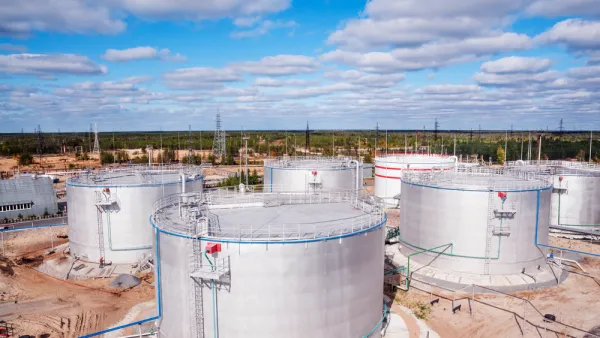In this Washington Post blog, Brad Plumer writes on a New American Foundation report on rising gas prices and their disproportionate impact on the poor and middle class. Public policies intended to reduce fuel consumption, however, benefit the rich.
A person of modest means is more likely to buy a used car than a new, fuel-efficient car, much less an even more costly new all electric vehicle, despite the $7,500 federal credit. In fact, when fuel prices rise, the used car market is flooded with cheap SUVs while compact cars are grow pricier and fewer. Yet subsidies and regulations predominantly aim to reduce fuel consumption from wealthier motorists, according to New American Foundation's newly released working paper, The Price-Induced Energy Trap (PDF).
The benefit of higher fuel prices in reducing fuel consumption
pales in comparison to the much larger expenditures in transportation resulting from the price increase notwithstanding some modal switch to transit, cycling, or commuting from home.
"In 2011, as gas prices have risen, Americans have cut back on fuel consumption by about 1.8 percent." However, "overall gas expenditures still rose 25 percent over the past year, or $102 billion. That essentially wiped out all of the benefits from President Obama's middle-class tax cut."
New American Foundation's Director of Energy Policy Initiative "Lisa Margonelli laid out the basic situation. Right now, the average family of four spends more on transportation than on health care and taxes combined."
From The Price-Induced Energy Trap: "Despite an anticipated 1.8 percent decline this year in gasoline consumption, for example, the overall expenditures for gasoline will increase 25 percent...Better understanding why very high gasoline prices do not lead to dramatic reductions in gasoline consumption could lead to policies that more quickly, and less painfully, reduce gasoline demand and consumer spending."
Thanks to John Hartz
FULL STORY: How gas prices are killing the middle class

Analysis: Cybertruck Fatality Rate Far Exceeds That of Ford Pinto
The Tesla Cybertruck was recalled seven times last year.

National Parks Layoffs Will Cause Communities to Lose Billions
Thousands of essential park workers were laid off this week, just before the busy spring break season.

Retro-silient?: America’s First “Eco-burb,” The Woodlands Turns 50
A master-planned community north of Houston offers lessons on green infrastructure and resilient design, but falls short of its founder’s lofty affordability and walkability goals.

Test News Post 1
This is a summary

Analysis: Cybertruck Fatality Rate Far Exceeds That of Ford Pinto
The Tesla Cybertruck was recalled seven times last year.

Test News Headline 46
Test for the image on the front page.
Urban Design for Planners 1: Software Tools
This six-course series explores essential urban design concepts using open source software and equips planners with the tools they need to participate fully in the urban design process.
Planning for Universal Design
Learn the tools for implementing Universal Design in planning regulations.
EMC Planning Group, Inc.
Planetizen
Planetizen
Mpact (formerly Rail~Volution)
Great Falls Development Authority, Inc.
HUDs Office of Policy Development and Research
NYU Wagner Graduate School of Public Service




























